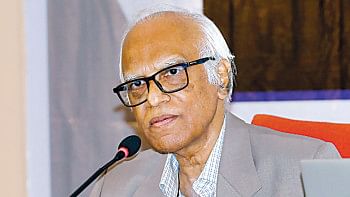Addiction: the silent catastrophe

Addiction is a common problem that silently haunts many families around the world. Ignorance, secrecy and social stigma make this problem worse with consequent shame and isolation. Addiction is often defined as a pathological relationship with an external mood-altering agent despite all the negative consequences it brings.
A wide range of emotions are normal human experiences. Emotions are the most primitive, relatively inert survival tools which come into action quite intuitively. Emotions are often perceived as good or bad depending on the physical response they produce. Broadly speaking constraining feelings (e.g. tightness in chest experienced in anxiety) are often perceived as bad as opposed to expanding feelings (e.g. chest opening in joy). Feelings are also perceived as good or bad depending on how we interpret the physical response to it (e.g. when the heart beats faster in fear, the brain can interpret it as impending heart attack leading to additional panic). Addiction is a faulty coping mechanism to deal with difficult emotions.
People use different kinds of coping mechanisms to deal with difficult emotions. Feelings and thoughts kick in independent of each other in response to an internal (e.g. memories) or external (e.g. getting fired from job) environmental trigger, they can then form a vicious cycle (e.g. panic attack) in absence of conscious intervention. Uncomfortable or negative emotions like boredom, loneliness, lack of pleasure, low self-esteem etc. can drive people to seek instant gratification to change the mood. Once they start regulating the mood with external objects, they develop a strong bond or relationship (explained by Pavlov's Condition Reflex) with that object and rely on it (albeit unconsciously!) to feel better.
When we talk about addiction, we tend to only think of illicit drug use. Ironically, humans can develop addiction to many other apparently benign objects like shopping, sex, video games etc. to escape reality and live in a bubble of "good feelings." It is hard to draw the line when it becomes addiction because these are not illicit activities and are used by a lot of people without experiencing any negative consequences.
Shopping can be a way to lift mood and get "highs" from adrenaline rush by spending money and possessing new objects. It won't be considered as addiction for the rich and wealthy who can afford it without any negative consequences whereas the same behaviour may prove to be addictive for someone who gets into serious debt quickly because of it.
Interestingly the pathology of addiction can still be identified by the impulsive urge to buy unnecessary things (sometimes people buy things they never use!) and then suffer from guilt and shame around it, tend to hide it from others, lie or make up stories to defend the behaviour etc. Unfortunately, consumerism ("shop till you drop!!") is highly promoted in today's materialistic lifestyle. Addiction is also a disease of lifestyle devoid of spirituality. Spirituality is allowing the conscious mind (mindfulness) to break unhealthy patterns. Shopaholics who don't hoard, tend to give away things regularly to others which is rather helpful to the poor and needy. A healthy society cherishes them as kind and generous. On the contrary, shopaholics who tend to hoard, live in a filthy situation packed with stuff. They cling to the objects as they cling to memories, and cannot let go. The sooner the shopaholic comes to senses the better, otherwise nature has its own way of preserving health and aborting pathology! Be spiritual, be mindful of your action and consequences.
Photo: Collected


 For all latest news, follow The Daily Star's Google News channel.
For all latest news, follow The Daily Star's Google News channel. 



Comments